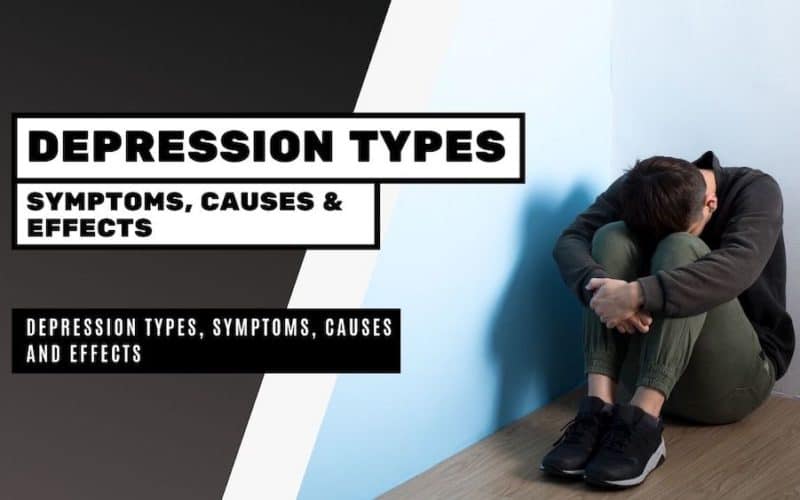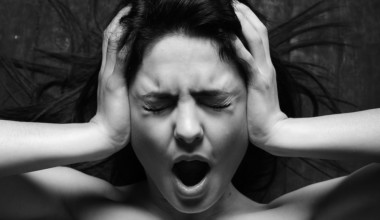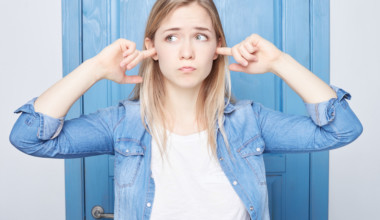Depression is a common form of mental disorder. Whenever a person experiences a traumatic event, such as loss of a job or a loved one, it is typical for him to experience grief or sadness.
However, when depression is present due to no specific reason, or it persists even when stressful events are over, it should be considered seriously, and medical consultation should be taken. In this article, we will discuss the depression symptoms, types, causes, and effects.
Table of Contents
Types of Depression:
Understanding the depression types, symptoms, causes, and effects can help you to get the right type and level of care for yourself or a loved one. There are many forms of depression, including:
- Postpartum depression: This type of depression occurs during or after pregnancy.
- Persistent depressive disorder (dysthymia): This is a chronic form of depression in which depression symptoms can last for at least two years, though they make become less severe with time.
- Seasonal affective disorder (SAD): This type of depression occurs during specific seasons of the year. Usually, it starts in late fall or early winter and lasts until spring or summer. Symptoms of winter seasonal affective disorder can be similar to those of major depression and can become less severe during spring and summer.
- Psychotic depression: This is a type of severe depression that can cause psychotic episodes, such as hallucinations and delusions.
- Depression related to medical illness: This is a persistent form of persistent depression which may cause loss of pleasure in activities that were previously enjoyed.
- Depression induced by drug or alcohol abuse medication: This disorder causes depression symptoms that develop during or soon after drug or alcohol use or withdrawal or after intake of certain medication.
- Atypical depression: Many people with depression don’t have typical symptoms. They may experience symptoms including weight gain, sleeping too much, and feeling anxious.
- Treatment-resistant depression: This is a serious form of depression in which the mind and body may not respond as well to the treatment and symptoms may continue to persist.
- Bipolar or Manic depression: Bipolar disorder is categorized by persistent and extreme mood swings from ‘high’ phases (mania) to ‘low’ phases (depression). During a manic episode, a person may feel euphoric and have increased levels of activity. Symptoms of a low phase are very similar to those of clinical depression.
Symptoms of Depression:
Symptoms may vary depending on the form of the mental disorder.
Common depression symptoms include:
- Feelings of sadness and grief
- Crying
- Feeling empty or hopeless
- Outbursts of anger
- Frustrated and irritated very easily
- Loss of interest or pleasure in most or all normal activities, such as hobbies or sports
- Changes in sleep patterns, such as insomnia or sleeping too much
- Fatigue and lack of energy, so even small tasks take extra effort and time
- Changes in appetite and weight loss or gain
- Anxiety
- Slowed thinking and speaking
- Feelings of worthlessness or guilty
- Trouble thinking and becoming forgetful
- Suicidal thoughts or attempts
- Physical problems, such as back pain or headaches, with no apparent reason.
Symptoms in children and teenagers:
Depression symptoms in children and teenagers are similar to those of adults, but there can be some differences.
In younger children, symptoms of depression may include sadness, irritability, refusing to go to school, or being underweight.
In teens, symptoms may include sadness, feeling negative and worthless, anger, poor performance or poor attendance at school, using recreational drugs or alcohol, eating or sleeping too much, self-harm, decreased interest in everyday activities, and social isolation.
Symptoms in older adults:
Depression can never be taken lightly, even as one age. But many times, depression is not diagnosed in older adults and can cause more complications. Symptoms are different and less severe, such as:
- Changes in personality
- Becoming forgetful
- Physical aches or pain
- Fatigue
- Sleep problems
- Loss of appetite
- Wanting to stay at home all the time
- Social isolation
- Suicidal thoughts
- Depression Causes
Cause of Depression:
There are many factors which can cause depression, such as:
- Genetics and biology: Studies associated with twins, adoption, and family studies have shown there that there’s a link between depression and genetics. It is believed that if an immediate family member has been diagnosed with depression, your risk of being depressed is higher.
- Brain chemistry imbalance: Depression is believed to be caused by an imbalance of neurotransmitters in our brain. These are chemical substances that help different areas of the brain communicate with each other and are involved in mood regulation. A decreased number of neurotransmitters may cause symptoms of clinical depression.
- Circadian rhythm disturbance: A seasonal affective disorder is believed to be caused by a disturbance in the normal circadian rhythm of the body. Light entering the eye influences this rhythm, and, during the shorter days of winter, when people may spend limited time outdoors, this rhythm may become disrupted.
- Unhealthy diet: A poor diet can cause depression in many ways. Many types of vitamin and mineral deficiencies are known to cause symptoms of depression.
- Physical illness: The mind and the body are linked, which is why a physical illness can cause mental health issues as well. The stress which comes with having a chronic illness can cause depression. Moreover, certain diseases, such as thyroid disorders, Addison’s disease, and liver disease, can cause depression symptoms.
- Substance abuse: Use and abuse of alcohol and drugs can cause depression in an individual.
- Stress: Stressful life events may also cause depression. Researchers suspect high levels of the hormone cortisol, which are secreted during periods of stress, may affect the neurotransmitter serotonin and contribute to depression.
- Loss of a loved one: When a person goes through the loss of a loved one, grief may turn into depression symptoms such as insomnia, poor appetite, and a loss of pleasure or interest in everyday activities.
Effects of Depression:
The most common effects of depression are:
- Physical pain such as headache and stomach pain
- Anxiety
- Weakened immune system
- Social isolation
- Inability to perform at work or school
- Problems in relationships
- Suicide
It can be seen that effects from depression can range from small annoyances to death. If depression is not treated, it can largely affect a person’s everyday life and enjoyment. With proper treatment and medications, depression and can be treated and managed by decreasing the severity of the depression symptoms.





